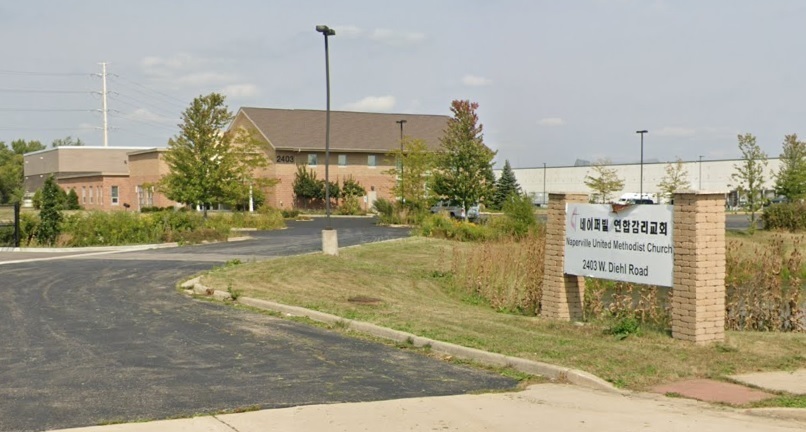Recent news that big-name chefs like Alex Seidel, Jen Jasinski, and Troy Guard are downsizing or leaving Denver altogether has led to dire predictions about the local restaurant industry. The reality is, despite the crushing weight of the rising costs of labor, goods, insurance, property taxes, and pretty much everything else, a new center is emerging.
The dining scene, which has been lavished with national attention in recent years — not the least of which is having Michelin Guide arrive in the city and multiple James Beard Award winners and nods — is built on the bedrock of the old guard, the restaurateurs who helped build it.
However, with pressing issues like annual minimum wage hikes (since 2021, Denver’s has been tied to the federal Consumer Price Index, and rises annually), times, as they say, are a-changin’.
A new (or newish) batch of restaurant operators has become increasingly nimble and braced to tackle whatever comes their way. “When we opened in 2019, we knew minimum wage increases were coming. We planned for it,” said Doris Yuen, co-owner and general manager of MAKfam, a Cantonese-American restaurant that expanded from Avanti to a brick-and-mortar last November. “That was never a deterrent in opening our restaurant, it was built into our model.”
And that model is one where every hourly employee receives what’s called the non-tipped minimum wage (currently $18.29, but set to rise to $18.81 on January 1), and tips are pooled. Tips are divided based on hours worked, and, by law, cannot be shared with salaried employees. In total, MAKfam’s staff is 25 strong, including Yuen and her husband and chef Kenneth Wan.
“Our greatest asset is our employees,” said Wan, who was nominated for a James Beard award in 2024. “If we have their best interest in our minds, they’ll keep our best interest in their minds.” So far, this model, coupled with counter service — which requires less staff — is working, and MAKfam (which also counts a Michelin Bib Gourmand award among its prizes) has a low turnover rate.
New strategies
Employee success is paramount for Leven Deli Co. co-founder Anthony Lygizos. His non-negotiables when opening in Denver’s Golden Triangle neighborhood in 2018 were paying above industry standard and offering what he calls “natural” hours, benefits, and career development. Six years in, even with skyrocketing costs (the hourly minimum wage was $10.20 when Leven first opened), Lygizos has not strayed from his original mission.
In fact, Leven is growing, in large part to create career opportunities for its staff, Lygizos said. Not only is he planning to open a head-shakingly large 500-seat Italian restaurant inside a 30-story building at 15th and Welton streets, Lygizos is putting the finishing touches on a grab-and-go shop called Leven Supply, which is expected to open in Washington Park by the end of the year.
“Both of these projects are really specific for our managers to grow,” he said. “We’ve always prioritized labor and it has become an advantage because our model revolves around that.”
Every restaurant in town has had to find ways to survive amid rising costs. Aminata Dia, a James Beard nominated chef and co-owner of Le French, at 846 Albion St. near Colorado Boulevard, has increasingly simplified her French-Senegalese dishes. “It’s been a constant adjustment with our menu,” she said. “My sister [and co-owner] came from a Michelin-starred restaurant so we started with more elevated plating and more expensive ingredients. Nowadays with employment rates, I’ve simplified more.”

This is in part because of the cost of goods, but it’s even more driven by the need to simplify tasks for her workforce. Between her original location near the Denver Tech Center, which opened in 2019, and this year-old restaurant, she’s seen a decrease in skilled labor. “I’m pushing the dishes with easier plating, so when I find myself with fewer employees, they can still be executed.”
At Ginger Pig, an Asian street food restaurant at 4262 Lowell Blvd., chef-owner Natashca Hess was very deliberate when she expanded from a food truck to a brick-and-mortar in late 2020. To save on rent, she chose a neighborhood over downtown, and within that neighborhood, Berkeley, she opted to remain outside of the commercial district.
She also runs lean with a fast-casual model, which requires a smaller staff than full service and easily accommodates third-party delivery. To save on labor, Hess is in the kitchen or working the floor six days a week. When Ginger Pig expanded to Boulder with a take-out only location in 2023, it opened with only three employees. (The Denver location has 20 staffers.)
Ginger Pig received a huge bump in business after Michelin awarded it a Bib Gourmand in 2023. The award, which recognizes restaurants that offer good food at affordable prices, was presented to just nine Denver spots that year (Ginger Pig retained the award in 2024). Even with the extra business, Hess has had to raise menu prices to cover costs. “My best skill is that I’m a problem solver, that’s why I’m still in business,” she said. “We are busy, we are lucky, we are still struggling. How can any industry withstand a 70% wage increase [in six years]?”
Tim and Lillian Lu, owners of fine-dining French restaurant Noisette in LoHi, feel the rising costs keenly. “For independent restaurants it’s exceptionally difficult because we don’t have the economy of scale of bigger restaurant groups,” Tim said. “But we’re also flexible so we’re finding other ways of adapting.” Among them, in 2022, the Lus opened a mini bakery that activated the space during the daytime (Noisette is only open for dinner).
And just a couple weeks ago, Micheline-recommended Noisette added a wine bar to further maximize the square footage. “Our rent is reasonable but the annual charges have gone up so we have to figure out more ways to be open for more hours.” Tim is quick to point out that the wine bar and bakery run with existing staff because adding another employee wouldn’t warrant the cost.
“There’s no one right way to do it,” said Austin Carson, who along with with Ty Leon and Heather Morrison, owns Restaurant Olivia, a Michelin recommended fine-dining Italian spot in Wash Park. “That’s one of the tricky things. I don’t get the sense that anyone has a foolproof blueprint.”
Despite that, Carson and crew are pursuing growth: Emilia, which will also center around Italian fare, will open in RiNo in 2025. Like Lygizos of Leven, Carson explains the primary reason for opening another restaurant is the ability to offer better healthcare and benefits to their employees. “As you start to add revenue, add different locations, and diversify, it puts you in the place to do more for your staff,” Carson said.

A well-intentioned problem
This is just the type of growth Denver Mayor Mike Johnston wants to see. “Restaurants are the economic and cultural heart of the city,” he said. “They are joy machines…they are some of the most important assets we have.”
At the same time, Johnston is aware of the stark truth: According to data obtained from the Colorado Restaurant Association (CRA), the city reports that the number of Denver restaurants fell from 4,130 in July/August 2023 to 3,947 in July/August 2024. That’s a decrease of 183 or 4.5%. Prior to 2020, the number of Denver restaurants usually grew by 3 to 5% per year.
In this regard, it’s understandable why many restaurant operators are discouraged. “There’s this feeling that business owners are left to figure it out on their own,” said Dia of Le French. “Everything is rising. What is strange to me is that we hire people, we are part of the economy, and we create employment, but we feel crushed and are stuck in the middle”
Restaurant operators are “incredibly resilient and resourceful,” said Sonia Riggs, President and CEO of the CRA. “It is, after all, an industry that survived multiple indoor dining shutdowns, capacity restrictions, and other pandemic-related obstacles to daily operations.
But that resilience can also work against them, by giving “the impression that they can survive anything,” she added. “When you start with 3-5% profit margins during the good times and add on burdensome government regulations and across-the-board increases to operational costs, sustainability becomes a real issue.”

Johnston concedes that the city’s minimum wage is part of the problem. “Minimum wage is one of those things that while well-intentioned, and in another economic environment maybe would work, is an added complication with rising property taxes and rising costs,” he said.
While it’s not within Johnston’s jurisdiction to reverse the action (it’s written into Colorado’s Constitution), he is focusing on doing what he can to revitalize a critical driver of the city: the downtown corridor, which historically has housed hundreds of restaurants. “I do have a ray of hope. This is why we’ve made such a priority on getting people back into restaurants and back into downtown,” Johnston said. “We knew a core element was resolving homelessness and upping safety, and it was about bringing people back to downtown.”
The change is now
Erasmo Casiano, co-owner of Lucina, Xiquita, and Create Cooking School and one of the most optimistic guys in the business, would like to see legislation that’s more forward-thinking and aware that a one-size-fits-all model doesn’t work for the restaurant industry. The premise behind increasing the minimum wage was, of course, a good one. Paying staff a good wage that allows them to live within the city they work is a basic right.

This is something that Casiano embraced long before it became law. When he first opened Create, he was paying significantly above the industry standard. “We were actually waiting for the laws to catch up with us,” he said. Same with Lucina, which Casiano opened in Park Hill in 2022, and now again with Xiquita, which just started serving in Uptown at the beginning of August.
Between Lucina and Xiquita, there are 54 employees and everyone started at minimum wage, and like at MAKfam, there’s a tip pool for hourly employees. From there, as natural leaders emerge, their hourly wage is increased. “The restaurant is a symbiotic relationship,” said Casiano, who is also a previous James Beard semi-finalist. “I always tell my staff to remove ‘just’ from your position, you’re not just a server, just a cook, or just a dishwasher. When that person ‘just’ doesn’t show up, we all feel it.”
With that comes the understanding, camaraderie, and accountability, that if everyone pulls their own weight, they will all make a good living.
Most important, Casiano refuses to not get bogged down by negativity. “We don’t want to bend to the will of what’s being told about the industry,” he said. “The change is now, it’s like the ground is kind of shaking beneath us, but our foundation is settling.”
Originally Published:







